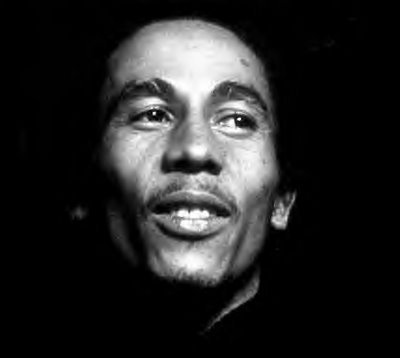Marley movie doesn’t resolve religion dilemma
BY BALFORD HENRY
Sunday Observer senior reporter
balfordh@jamaicaobserver.com
15/5/2012
Read more: http://www.jamaicaobserver.com/columns/Marley-movie-doesn-t-resolve-religion-dilemma_11412512#ixzz1uxJYlbxM
THE new docufilm Marley has brought home an image of the late reggae great, Bob Marley, to a young generation who were probably finding it hard to understand what was so special about him and his music.
It presents Marley’s life in the context of a society still struggling to define itself, politically, socially and economically, which should make it much easier for young people to digest the legend and assimilate the aura. However, there are basic issues which people who knew Marley well enough had hoped would have been resolved by this film but on which the movie failed to deliver.
The most profound goes to the root of the reggae superstar’s religious identity, an issue very much complicated by Marley’s baptism into the Ethiopian Orthodox Church (EOC) months before his death on May 11, 1981.
A year before Abuna Yesehaq died, I was invited to the Ethiopian Orthodox Church on Maxfield Avenue to speak with him.
Yesehaq (born Laike Maryam Mandefro in Adwa, Ethiopia, 1933), who was then Archbishop of the Ethiopian Orthodox (Tewahedo) Church in the Western hemisphere, welcomed me into the church hall and proceeded to explain the situation affecting its relationship with Rastafarians, especially Marley and late founding member of the Wailers Peter Tosh. He was so willing to talk non-stop it was as if he wanted to unload a whole lot off his chest.
I learnt that Marley’s family was converted around 1972, but despite being continually under the spiritual guidance of the archbishop, he was not baptised until seven months before his death. I also learnt that he backed out three times from baptism before eventually yielding in 1981.
According to the archbishop, Marley backed out each time because of threats from other Rastas. When he was eventually baptised in New York, he was renamed Berhane Selassie, which means “light of the trinity”.
It was hard to understand Marley being afraid. Certainly not the Marley whom I had interviewed at 56 Hope Road after the shooting incident which left him injured, and who later went to National Heroes Park and performed before the biggest crowd I have ever seen at a concert in Kingston.
But Archbishop Yesehaq feared attacks from Tosh and his goons, who had joined the church but left because they wanted the EOC to become a church for Rastafarians, and Ïthe Archbishop resisted. Maybe Marley did too.
Bishop Yesehaq died in December 2005 in Newark, New Jersey. But during my research, I came across a copy of Ian Boyne’s Profile on the Internet on which the Archbishop made similar statements nearly 10 years earlier.
In that interview, Yehesaq confirmed that he had actually baptised Marley into the EOC in the singer’s hotel room in New York seven months before his death from cancer.
“I did baptise Bob Marley in the presence of his wife and children, only the family, because he was not so willing to have it official, because it would have been difficult for him,” he said.
“When I baptised him, he cried for almost half-an-hour. I baptised him seven months before he died… I knew him personally, long before I baptised him. Many times he was to be baptised but for various reasons he couldn’t,” he added.
The bishop also confirmed that he came to Jamaica in 1970, sent by Haile Selassie I, to establish the EOC in Jamaica and rationalise the existence of the church as a Christian church, as well as the fact that Selassie was a Christian baptised into the church.
But, in his anxiety to get the church going, Yesehaq baptised thousands of Rastafarians into the congregation.
“As a matter of fact, between 1970 and 1978, about 20,000 persons were baptised,” he told Boyne. However, he admitted that this would later create problems for him and the church.
“Afterwards there was a lot of disappointment, because so many Rastafarians expected that the church would have embraced their ideology. It was difficult for me. Although I wanted them to be in the church, and I would not tell them their beliefs because every man is free to believe and worship the way they want to… but as a member of the church, you must follow the teachings and doctrines of the church,” Yesehaq explained in his broken English.
Asked about the church’s view of Haile Selassie, he said, “To the Ethiopians and the EOC he is not God. He was a member of the EOC and a defender of the EOC.
Many Rastas believe in the divinity of Selassie.
Yesehaq admitted that most of the Rastafarians who had entered the church left and joined other organisations more sympathetic to their view of Haile Selassie.
But Marley stayed close to Yesehaq, with whom he had a very good relationship up to the time of his death. Yesehaq even advised him to accept the church’s belief in monogamous relationships (a strict EOC principle), an advice he said Marley accepted but obviously never practised.
He said Marley never mentioned Haile Selassie as God in his presence.
He always asked me who is Christ, and I would tell him Christ is the one who was crucified… He was very diplomatic… he had great respect for me,” the archbishop said.


828239 110110really great put up, i actually really like this internet internet site, keep on it 709991
157115 331171Hello! I just wish to give a huge thumbs up for the great info youve gotten proper here on this post. I will likely be coming back to your weblog for much more soon. 816106